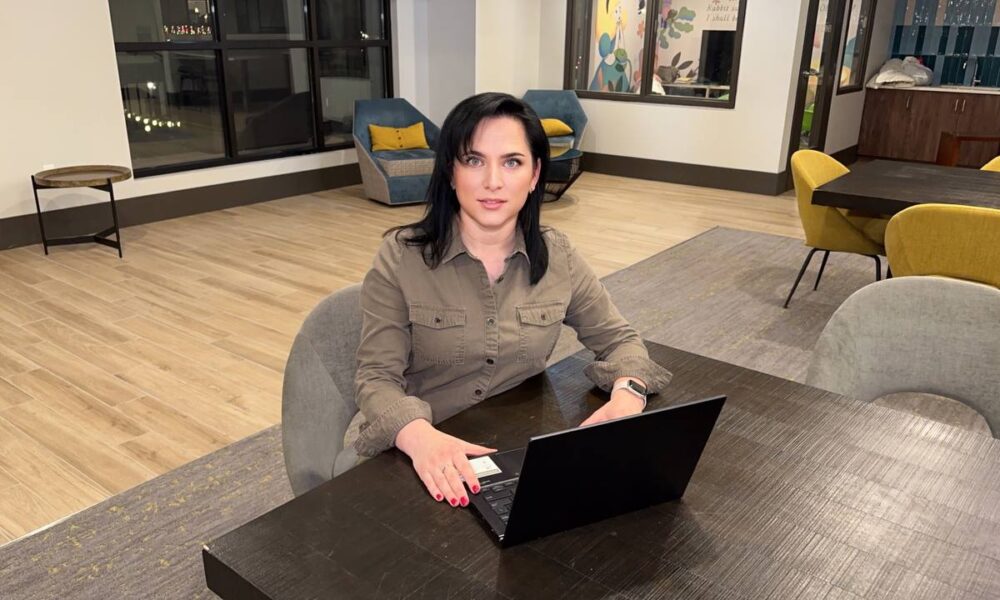Natella Horodetska, a Ukrainian teacher, researcher and founder of Neuro Mental Math LLC, has been invited to the jury of the prestigious ECDMA Global Awards for her outstanding contribution to the advancement of technology-driven special education. This recognition underscores the international relevance of her methods, which are transforming how children learn across the globe, including in the United States.
An award-winning educator with over 15 years of experience in cognitive development and early learning, Natella is widely regarded as a leading authority and innovator in the field of mental arithmetic and neuro-based learning systems. Her work is considered pivotal in shaping new standards for education that emphasize brain development alongside academic achievement.
Originally from Kyiv, Ukraine, she holds two Master’s degrees in education and is certified in the Montessori method in the U.S. She has established several educational centers and developed an innovative mental math platform that enhances focus, memory, and cognitive speed — including for children with learning differences and developmental challenges. Now based in Minnesota, Natella leads Neuro Mental Math LLC, speaks at international conferences, and has authored multiple scientific publications.
In recognition of her impact, she was awarded the Queen Anna Order, honoring breakthroughs in digital learning and education technology. She is also the recipient of the CatalyX Ventures 2025 Award, and the American Business Expo Award in the category of “Special Education” — celebrating individuals and organizations delivering real-world results through innovation. All of this underscores the leading and critical role that Natella’s work plays in the field of special education.
In 2025, Natella Horodetska — a recognized expert in children’s cognitive development and founder of Neuro Mental Math LLC — proudly represented the United States at the “VF CUP 2025” International Online Mental Arithmetic Olympiad, one of the most prestigious global competitions in the field of intellectual and cognitive education.
The event brought together participants from dozens of countries, with the GURU level — the highest category of difficulty — presenting especially fierce competition. Under intense time pressure and rigorous standards, Natella demonstrated exceptional mental agility and strategic thinking, earning 2nd place worldwide and 1st place among all U.S. participants.
This achievement is not only a personal milestone but also a powerful testament to the effectiveness of Natella’s proprietary teaching methodology, which she continues to develop and implement through her educational platform. Her success at the Olympiad reaffirms her international standing as a leader and innovator in the field of neuro-based pedagogy and mental arithmetic.
“Not Just Counting – But Learning to Think Differently”: An Interview with Natella Horodetska
What inspired you to develop your own teaching methodology?
I’ve always been fascinated by the potential of a child’s brain. Early in my career, I realized that success in education often depends not on what we teach, but how we teach it. This is especially true for children with atypical learning needs — they often require a completely different “language” of instruction.
When I first encountered mental arithmetic, I was amazed at how deeply it engaged the brain — not only enhancing logic and memory, but also focus, emotional regulation, and even imagination. I saw it not just as a counting tool, but as a full-fledged neuropsychological training system. That’s how my methodology was born: built on activating both hemispheres of the brain, adapting to individual needs, and fostering real thinking, not just skill acquisition.
How does your approach differ from traditional education?
Traditional systems focus on memorization and repetition. My method emphasizes cognitive flexibility, processing speed, attention, self-regulation, and intrinsic motivation.
For example, after completing our mental arithmetic course, 87% of children show a 45–50% increase in focus, improved memory, and reduced anxiety — results confirmed by both parents and neuropsychologists. We’re not just teaching — we’re creating an environment where thinking becomes natural.
Which children benefit most from your system?
My approach is adaptable and scalable — it supports both advanced learners and those with developmental delays, ADHD, autism spectrum disorders, and other learning challenges. We customize pace, format, and structure for each child.
One of my students, a previously nonverbal 6-year-old girl with autism, began to speak after just a few months of working with the abacus. That wasn’t just progress — it was a profound developmental breakthrough.
These stories are living proof: the right method can transform a child’s entire learning trajectory.
How do you measure the real impact of your methods – beyond just academic success?
To me, true impact means long-term cognitive change. It’s not just about grades or test scores — it’s about attention span, working memory, emotional stability, and a child’s ongoing motivation to learn. That’s why we use neuropsychological assessments before and after every program.
We measure indicators like cognitive speed, self-regulation, and memory retention — but we also look at independence, resilience, and curiosity. It’s not just about calculation — it’s about building a mind that’s ready to learn and grow.
What do you see as the future of education?
The future lies in a synthesis of science, adaptive technologies, and personalized learning paths. AI and digital platforms are important — but they are only tools. The real value lies in educators who can see each child’s unique strengths and guide them accordingly.
I created the online platform Mental Math: Oral Counting, which adjusts to each learner’s cognitive level. But more important than the interface is the holistic system of support that surrounds each child.
Why this matters:
In a world that demands adaptability, creativity, and deep focus, traditional education is no longer enough. Natella Horodetska’s work combines neuroscience, cognitive training, and forward-thinking pedagogy — offering a new path for educators, families, and learners alike. Her leadership in the field is helping redefine what effective, modern learning can and should be.












Leave a Reply